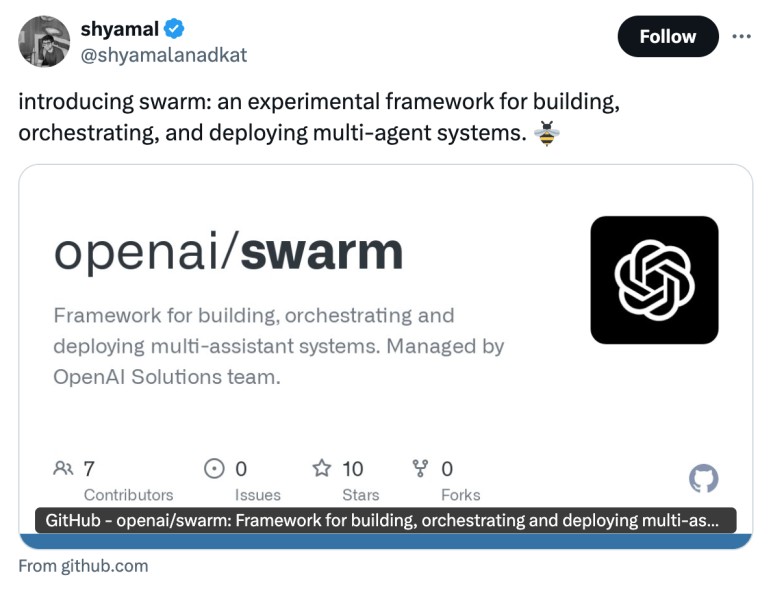
OpenAI has introduced an experimental framework called "Swarm," designed to orchestrate networks of AI agents. This unexpected release has sparked intense discussions in the tech industry about the future of enterprise automation and AI ethics.
Swarm provides developers with a blueprint for creating interconnected AI networks capable of communicating, collaborating, and tackling complex tasks autonomously. While multi-agent systems are not a new concept, Swarm represents a step towards making these systems more accessible to a broader range of developers.
The potential business applications of Swarm-inspired technology are extensive. Companies could theoretically create networks of specialized AI agents for different departments, working together to analyze market trends, adjust marketing strategies, identify sales leads, and provide customer support—all with minimal human intervention. This level of automation could revolutionize business operations.
However, the release of Swarm has also reignited debates about the ethical implications of advanced AI systems. Security experts stress the need for robust safeguards to prevent misuse or malfunction in networks of autonomous agents. Concerns about bias and fairness also loom large, as decisions made by these AI networks could significantly impact individuals and society.
OpenAI has been clear about Swarm's limitations. Shyamal Anadkat, a researcher at the company, stated on Twitter: "Swarm is not an official OpenAI product. Think of it more like a cookbook. It's experimental code for building simple agents. It's not meant for production and won't be maintained by us."
This caveat tempers expectations and serves as a reminder that multi-agent AI development remains in its early stages. However, it doesn't diminish Swarm's significance as a conceptual framework. By providing a tangible example of how multi-agent systems might be structured, OpenAI has given developers and businesses a clearer vision of potential future AI ecosystems.
For enterprise decision-makers, Swarm serves as a catalyst for forward-thinking. While not ready for immediate implementation, it signals the direction of AI technology's evolution. Companies that begin exploring these concepts now—considering both their potential benefits and challenges—will likely be better positioned to adapt as the technology matures.
The tech world is now closely watching how developers will build on the ideas presented in Swarm, and how OpenAI and other major AI companies will continue to shape the trajectory of this transformative technology. As the conversation surrounding Swarm unfolds, it underscores the need for collaboration among technologists, ethicists, and policymakers to ensure that AI's development aligns with societal values.